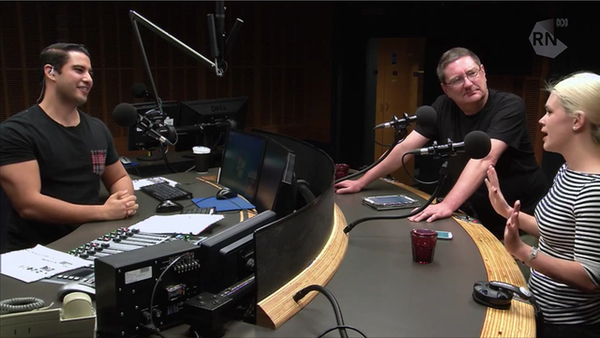 My week of Monday 2 to Sunday 8 June 2014, at least beyond immediate work commitments, was somewhat limited by certain cashflow issues, but that seems to always happen when there’s a long weekend early in the month.
My week of Monday 2 to Sunday 8 June 2014, at least beyond immediate work commitments, was somewhat limited by certain cashflow issues, but that seems to always happen when there’s a long weekend early in the month.
Still, the ebook project progressed nicely — and that will be announced properly in approximately a week. It’s not that exciting, though, trust me.
Articles
Oddly enough, both of these were triggered by the announcements at Apple’s Worldwide Developers Conference (WWDC). I found it quite funny that some people, even some alleged technology journalists, said there was nothing interesting to report because there wasn’t any new hardware.
- How Apple is revolutionising your digital future — and you’ll never notice, Crikey, 3 June 2014.
- Apple’s new iOS 8 openness brings new security threats, ZDNet Australia, 3 June 2014. If I had my life over again, I’d change the headline. “Apple’s new iOS 8 openness brings new security risks”, not “threats”. The threats are the same old same old.
There’s also the blog posts I wrote for Blogjune, which you may find interesting. Or not.
Media Appearances
- On Wednesday I spoke about Google and the right to be forgotten on ABC 666 Canberra.
- Also on Wednesday, I spoke about “swatting” on Sydney radio commercial 2UE.
- On Thursday I spoke about “swatting” again on 2UE.
5at5
Not quite a full week this week, though Friday’s was a bumper edition to make up for the gap. Why don’t you subscribe to 5at5?
- 5at5 number 59, 2 June 2013.
- 5at5 number 60, 3 June 2013.
- 5at5 number 61, 4 June 2013.
- 12at12 number 62, 6 June 2013.
Geekery
- I set up my own Twitter archive, as already explained.
Corporate Largesse
- On Friday I caught up with Michael McKinnon from AVG Technologies AU. We spoke about many interesting things, and he bought a couple of beers and dinner.
The Week Ahead
Monday is a public holiday for the Queen’s Birthday, but since she has neglected to invite me to her party — an administrative oversight I can accept, because she is a busy woman — I will be catching up with a friend instead. And then I shall return to Wentworth Falls.
Tuesday is a day of research and planning, unless a writing commission comes up. Wednesday is a day trip to Sydney for a lunchtime briefing by Brocade. Thursday is a day of writing. Wednesday and Thursday are days of writing. Friday onwards has yet to be allocated.
[Photo: St Stephens Anglican Church, Newtown, photographed from Camperdown Memorial Rest Park on 21 June 2003. I’ve decided that if I haven’t taken any decent photographs in the week covered by the Wrap, I’ll pick something from the same month in the past.]
[Update 10 June 2014, 1515 AEST: The Week Ahead edited to reflect a change of plans for Wednesday.]

 There’s a reason I’m firing off all these blog posts so early. I’ve been up since 0300 this morning, because at 0400 I was doing a radio spot on
There’s a reason I’m firing off all these blog posts so early. I’ve been up since 0300 this morning, because at 0400 I was doing a radio spot on 
 Last week I recorded an interview on the state of internet security with The Wire, the current affairs program for Australia’s community radio network produced by 2SER in Sydney. It went to air on Monday night, 5 May.
Last week I recorded an interview on the state of internet security with The Wire, the current affairs program for Australia’s community radio network produced by 2SER in Sydney. It went to air on Monday night, 5 May.